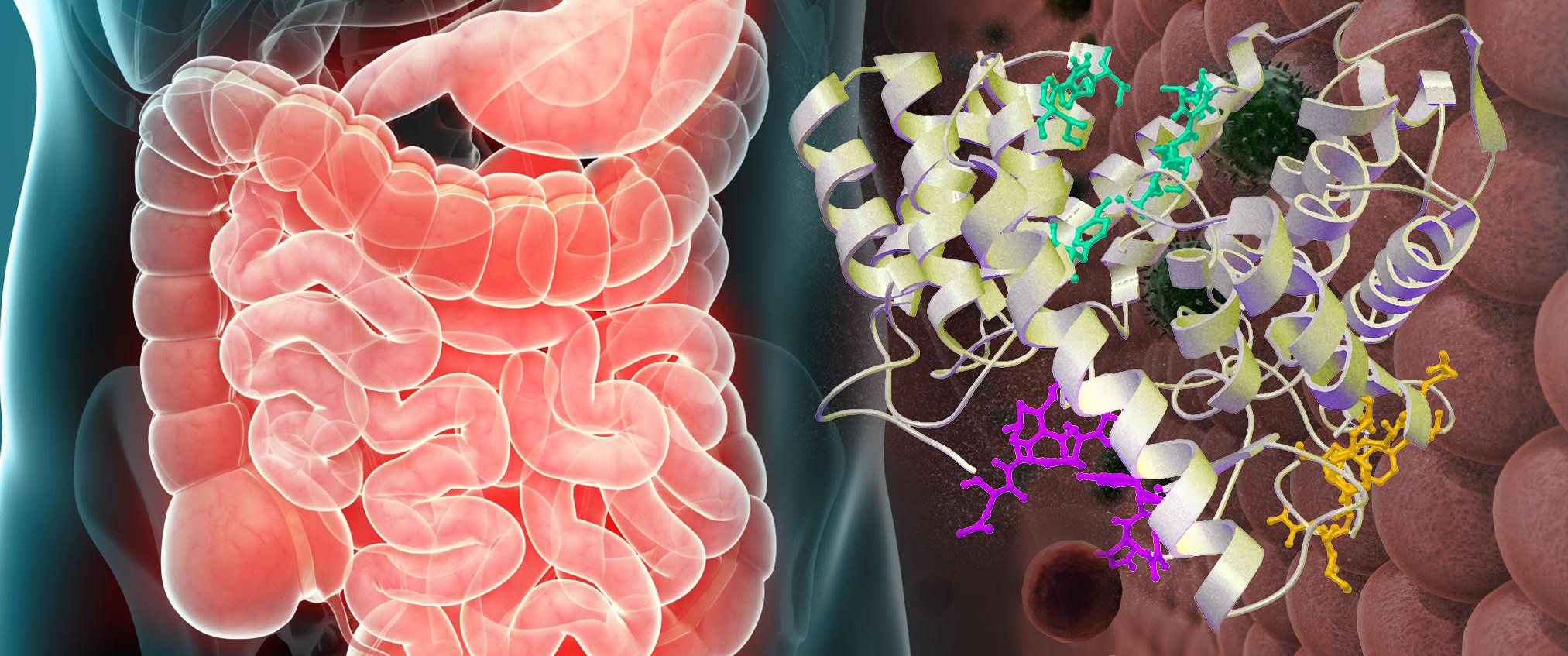BT-11: A New Player on the Path to Cures for Inflammatory Bowel Disease

November 10, 2016, Blacksburg, VA—A recent publication in the Journal of Medicinal Chemistry has described the discovery, synthesis and testing of a novel LANCL2 ligand, known as BT-11,as a first-in-class, oral, small molecule therapeutic for inflammatory bowel disease (IBD).
BT-11 is an analog of NSC61610, a chemical discovered through virtual screening in a NIMML publication in PlosOne. Both ligands target LANCL2, a receptor in a signaling pathway that intercepts IBD at two levels: first, it blocks pro-inflammatory responses and second it activates anti-inflammatory responses within the gut. The pharmacological activation of LANCL2 reduces disease symptoms and gut inflammatory lesions by 90% in mice with IBD.
“This recent paper further substantiates the LANCL2 technology as a therapeutic target for IBD and reports our initial, nonclinical findings on BT-11, a small-molecule therapeutic that outperforms current drugs and INDs. Our safety studies in rats demonstrate a benign safety profile for BT-11 at doses that are 100 times higher than its effective dose. We anticipate completing the remaining IND-enabling studies in order to file an application for BT-11 by 2017,” said Dr. Josep Bassaganya-Riera, the Director of NIMML and Founder of BioTherapeutics.
The BTI press release can be read in its entirety here.
The NIMML has also developed computational models of IBD and worked to determine the efficacy of targeting LANCL2 in the context of inflammatory bowel disease through next generation in silico clinical trials. For further reading on this work, please see our previous press releases on these topics: computational model of IBD and in silico clinical trials.
About NIMML
The NIMML Institute is a 501 (c) (3) non-profit public charity foundation focused on a transdisciplinary, team-science approach to precision medicine at the interface of immunology, inflammation, and metabolism. The NIMML Institute team has led numerous large-scale transdisciplinary projects and is dedicated to solving important societal problems by combining the expertise of immunologists, computational biologists, toxicologists, modelers, translational researchers, and molecular biologists. The Institute is headquartered in Blacksburg, VA. For more information, please visit www.nimml.org or contact pio@nimml.org.
